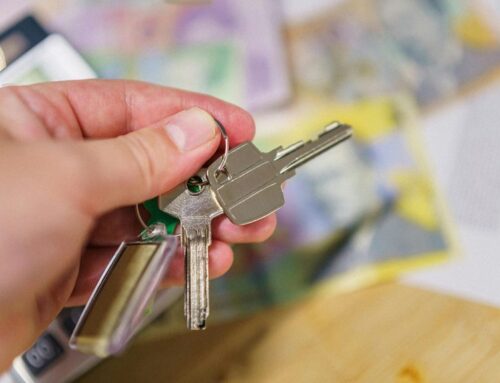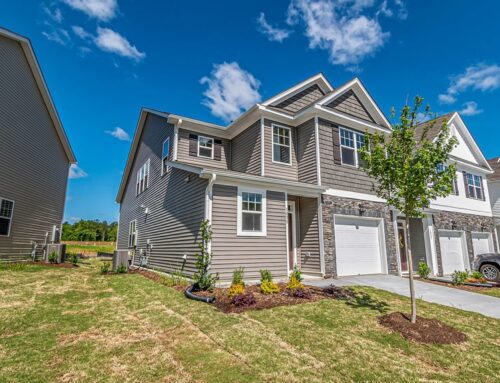Experiencing foreclosure can deeply affect homeowners in various ways. From missed mortgage payments and damaged credit scores to emotional stress and loss of cherished assets, the impact can be long-lasting. The financial strain, coupled with the emotional toll and credit repercussions, can make it challenging to secure new housing and rebuild after foreclosure. Seek guidance from financial advisors or housing counselors to navigate through the complexities of this process and explore potential solutions. Understanding the multifaceted effects of foreclosure is vital in preparing for the journey ahead and finding ways to overcome the challenges faced by homeowners in such situations.
“Ready to take the next step? Contact Us today and let us guide you!”
Reach Out Now
Financial Implications of Foreclosure
When facing foreclosure, the financial implications can be overwhelming. The looming threat of losing your home can have a significant impact on your finances. From missed mortgage payments to legal fees and potential damage to your credit score, the costs can quickly add up.
It may feel like a never-ending cycle as late fees accumulate, and the pressure to catch up becomes insurmountable. Finding a way to navigate through this challenging time is crucial. Seeking assistance from a financial advisor or housing counselor can provide valuable guidance on potential solutions such as loan modifications or refinancing options.
Addressing the financial aspects proactively is vital to mitigate the long-term consequences of foreclosure.
Emotional Toll on Homeowners
Experiencing foreclosure not only impacts a homeowner’s finances but also takes a significant emotional toll. The emotional ramifications of losing one’s home can be profound and long-lasting.
Here are three ways foreclosure can affect homeowners emotionally:
- Stress and Anxiety: Uncertainty about the future, the feeling of losing control, and the stigma associated with foreclosure can lead to heightened stress levels and persistent anxiety.
- Guilt and Shame: Homeowners may feel guilty for not being able to maintain their mortgage payments and experience shame due to societal perceptions surrounding foreclosure.
- Depression and Loss: The sense of loss associated with leaving a cherished home, coupled with financial strain, can trigger feelings of depression and hopelessness.
Impact on Credit Scores
So, let’s talk about how foreclosure impacts our credit scores. It’s a tough pill to swallow, as it can cause a significant drop in our credit rating.
However, there are strategies we can implement to start rebuilding our credit post-foreclosure and mitigate the long-term financial effects.
Credit Score Implications
Facing foreclosure can have a significant impact on a homeowner’s credit score. The implications of this can be long-lasting and challenging to overcome. Here’s what you need to know:
- Credit Score Drop: A foreclosure can lead to a substantial drop in your credit score, making it harder to secure loans or credit cards in the future.
- Negative Mark on Credit Report: The foreclosure will remain on your credit report for up to seven years, affecting your creditworthiness during that time.
- Difficulty in Rebuilding Credit: Rebuilding your credit after a foreclosure can be a slow and challenging process, requiring diligent financial management and patience.
Recovery Strategies Post-Foreclosure
After facing a foreclosure and experiencing the subsequent impact on your credit score, it’s essential to implement effective recovery strategies to rebuild your financial standing.
Begin by checking your credit report for accuracy and addressing any errors promptly. Set up a budget to manage your expenses and prioritize paying bills on time to demonstrate financial responsibility.
Consider applying for a secured credit card or becoming an authorized user on someone else’s account to start rebuilding your credit. Keep your credit utilization low and avoid applying for multiple lines of credit at once.
Patience is key as it takes time to improve your credit score, but with consistent effort and responsible financial habits, you can gradually regain your financial stability.
Long-Term Financial Effects
Upon experiencing a foreclosure, the impact on my credit score can have lasting effects on my financial situation. It’s essential to grasp how this aspect can shape my financial future. Here are key points to keep in mind:
- Credit Score Decrease: A foreclosure typically leads to a significant drop in credit score, making it more challenging to secure favorable loan terms or new lines of credit.
- Difficulty in Obtaining Loans: Lenders may view individuals with a foreclosure on their record as high-risk borrowers, resulting in limited access to financial opportunities.
- Higher Interest Rates: If approved for loans post-foreclosure, they often come with elevated interest rates, increasing the cost of borrowing over time.
Being mindful of these consequences can aid in planning for a more stable financial future.
Loss of Home and Assets
Experiencing the loss of a home due to foreclosure can be a devastating and overwhelming ordeal. Not only does it mean saying goodbye to the place where countless memories were made, but it also involves losing the sense of security and stability that a home provides.
The emotional toll of letting go of a familiar and cherished space is compounded by the harsh reality of losing valuable assets tied to the property. Furniture, appliances, and personal belongings accumulated over the years may need to be sold or abandoned.
The financial impact extends beyond the home itself, affecting one’s overall net worth and leaving homeowners in a vulnerable position. The loss of home and assets can be a profound and distressing experience that takes time and effort to recover from.
Challenges in Finding New Housing
Amidst the turmoil of foreclosure, the task of finding new housing looms large like a challenging mountain to climb. It’s not just about finding a new place to live; it’s about starting over and rebuilding a sense of stability.
Here are three key challenges that homeowners face when searching for new housing:
- Financial Constraints: Coming out of foreclosure often means limited financial resources, making it difficult to afford upfront costs like security deposits and moving expenses.
- Limited Options: The foreclosure on your record can make landlords hesitant to rent to you, limiting the available housing options.
- Emotional Strain: The stress of losing a home and the uncertainty of finding a new one can take a toll on your mental well-being, adding another layer of difficulty to the housing search.
Strategies for Rebuilding After Foreclosure
Hey there, rebuilding after foreclosure can be tough, but it’s not impossible. One key strategy is working on rebuilding your credit – staying current on payments and reducing debt can help improve your credit score over time.
Additionally, exploring new housing options like renting or considering government-assisted programs can provide a fresh start on the path to financial stability.
Rebuilding Credit After Foreclosure
Managing the aftermath of a foreclosure can feel overwhelming, especially when it comes to rebuilding credit. To start the journey of improving your credit score after a foreclosure, consider the following steps:
- Check Your Credit Report: Obtain a copy of your credit report from all three major credit bureaus to review your current standing and identify any errors that may be impacting your score.
- Establish a Budget: Create a detailed budget to manage your finances effectively, ensuring you can meet your financial obligations on time and avoid further credit issues.
- Build Positive Credit History: Begin rebuilding your credit by making timely payments on any remaining debts, considering secured credit cards, and seeking credit-building loans to demonstrate responsible financial behavior.
Finding New Housing Options
Exploring the housing market after experiencing a foreclosure can present unique challenges for individuals seeking to rebuild their financial stability. After foreclosure, finding new housing options becomes pivotal. Here are some strategies to help you navigate this process effectively:
| Strategy | Description |
|---|---|
| Renting | Consider renting a property as a short-term solution while rebuilding finances. |
| Lease-to-Own Options | Explore lease-to-own agreements that can offer a path to homeownership. |
| Affordable Housing | Look into affordable housing programs offered by local governments. |
| Roommates or Co-Ownership | Sharing housing costs with roommates or co-owning with others can be beneficial. |
Conclusion
Well, congratulations! You’ve just won the not-so-coveted prize of experiencing the joy of foreclosure firsthand. But hey, look on the bright side – you now have a front row seat to witness the financial devastation, emotional turmoil, credit score nosedive, and the struggle to find new housing. So, enjoy the rollercoaster ride of rebuilding your life after foreclosure! Good luck!











